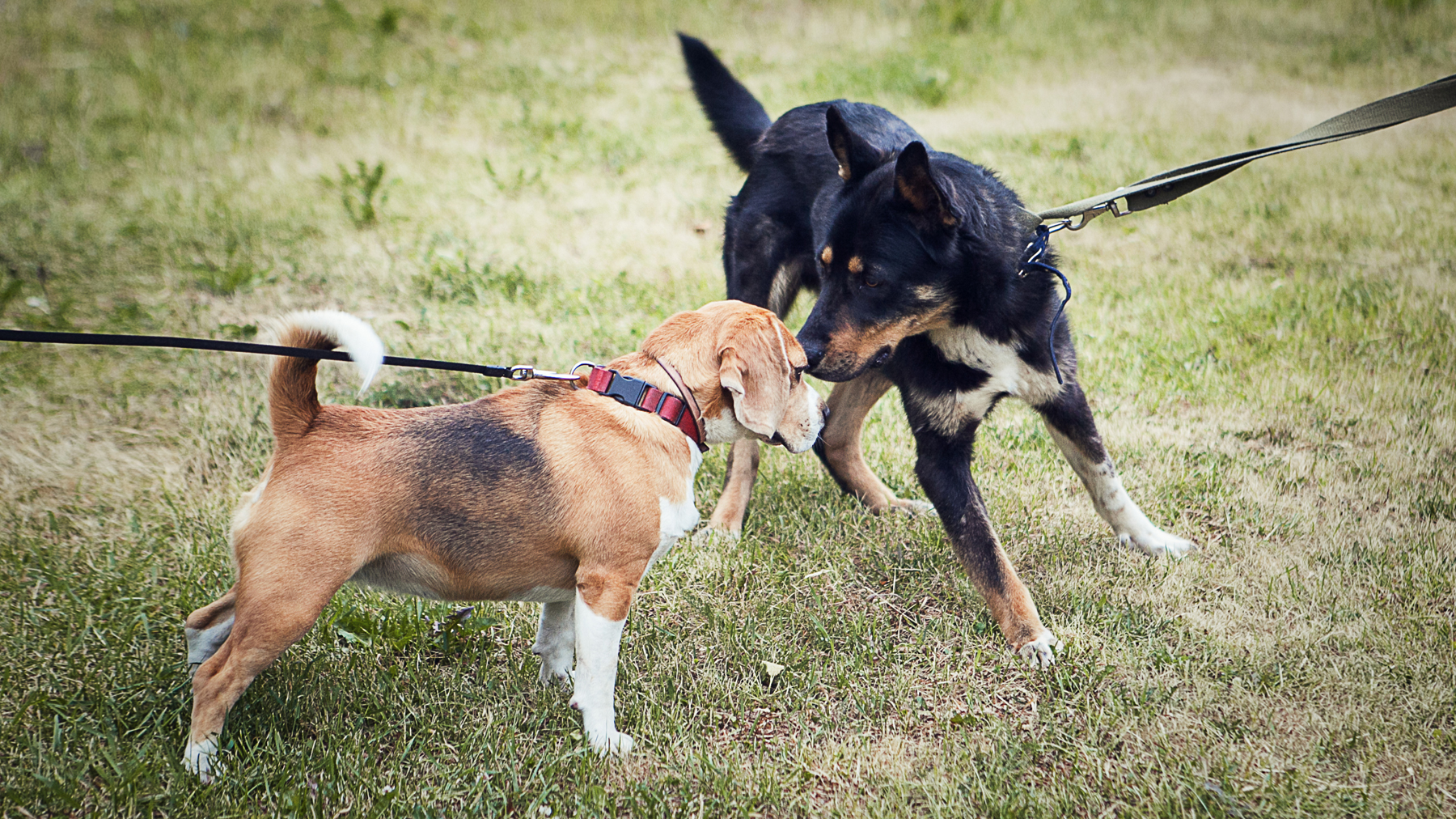
Disclaimer: Unless specifically stated, any expert comments quoted in this news piece have been taken directly from the video cited below.
Is your dog reactive? If so, you don't need us to tell you how challenging this issue can be.
Reactive dogs become overly aroused by common stimuli. Certain triggers (such as the doorbell going or another dog walking past) cause an overreaction that can result in behaviors like barking, lunging, and growling.
It's essential as a pet parent to a nervous or anxious pup that you not only understand how to calm a reactive dog, but that you're also familiar with the potential causes.
And that's where expert trainer Jill Hassevoort can help.
A graduate of the prestigious Karen Pryor Academy, Hassevoort has extensive experience working with fearful and reactive dogs.
Keep reading as she reveals five common causes for reactivity in dogs...
1. Genetics: "Some types of dogs have been selectively bred for traits that make “reactive” behaviors more likely, especially when those dogs are placed into mismatched environments," says Hassevoort.
2. Experiences: "Negative interactions, a lack of exposure when young, and even too much interaction can result in a dog who barks and lunges at certain stimuli."
3. Pain: "Pain is so closely linked to behavior but often overlooked. A dog who is in pain may choose to defend their space and body to protect themselves," explains Hassevoort.
4. Fear: "Many dogs learn that barking and lunging makes that scary stranger go away. The key isn’t to punish that behavior, but to change the underlying emotion."
5. Environment and lifestyle: "If a dog’s space and routine are filled with stress and high-intensity activities without measures to mitigate, healthy outlets, and agency, that stress will likely come out in the form of maladaptive behaviors," Hassevoort explains.
Your dog's reactivity may not be down to just one of the above causes but could be a combination of several.
While reactive behaviors can be difficult to deal with, Hassevoort says it's important to remember that you're not to blame.
"Your dog is not reactive because you’re not a “good pack leader” or because they walk in front of you or because you let them on the couch or give them endless affection," she explains.
If you feel you and your pup would benefit from some 1:1 support in this area, we highly recommend seeking the advice and guidance of a qualified professional.

.jpg?w=600)





